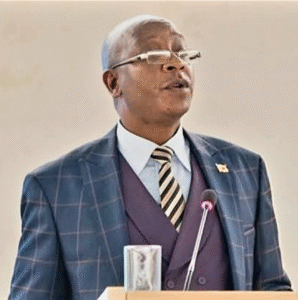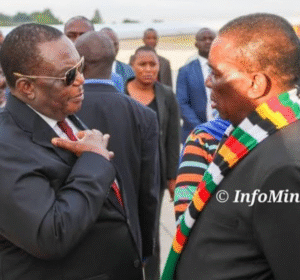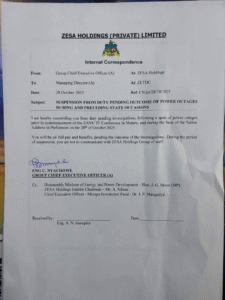GOLD BARON’S PARLIAMENTARY SEAT SPARKS OUTRAGE AND CONCERNS OF CONFLICT

In what is being branded as a controversial move, the appointment of Pedzai “Scott” Sakupwanya, a known gold baron affiliated with the ruling Zanu PF party, to the parliamentary portfolio committee on Mines and Mineral Development has ignited a firestorm of criticism from civil society organisations. This committee is crucial in its role, given its mandate to oversee and monitor the mining industry in Zimbabwe, a sector pivotal to the country’s economy. The outcry centers around fears that Sakupwanya’s new position could pose a significant conflict of interest, especially in light of accusations regarding harmful mining practices in Penhalonga that are currently shadowing him.
Sakupwanya’s appointment raises several ethical and procedural questions, not least because of his direct involvement in the gold mining sector. Critics argue that having someone so deeply entrenched in the industry could bias the committee’s oversight functions, potentially skewing decisions in favor of private interests over public good. The concerns are not unfounded. Penhalonga, where Sakupwanya’s mining activities are under scrutiny, has been a hotspot for environmental and social issues attributed to irresponsible mining practices. These include land degradation, water pollution, and a disregard for the health and safety of local communities.
The civil society organisations have been vocal in their condemnation, pointing out the inherent risks of allowing individuals with vested interests in the mining sector to play a role in its regulation. Their argument is that Sakupwanya’s position on the committee could undermine efforts to hold mining companies accountable for their environmental and social impacts. This, they fear, could set a dangerous precedent, eroding public trust in the institutions meant to protect Zimbabwe’s natural resources and the wellbeing of its people.
The situation is further complicated by Zimbabwe’s reliance on mining as a cornerstone of its economy. The sector is a significant source of foreign exchange and employment, making its sustainable and ethical management a matter of national importance. The appointment of Sakupwanya, therefore, is not just a question of potential ethical violations but touches on broader issues of governance, transparency, and the alignment of Zimbabwe’s economic policies with its environmental and social responsibilities.
This development comes at a time when Zimbabwe is striving to attract foreign investment in its mining sector. The integrity of the regulatory framework and the credibility of those who oversee it are crucial in convincing potential investors that Zimbabwe is a safe and responsible place to do business. Any perception of conflict of interest or regulatory capture by industry insiders could deter investment and hamper the country’s economic prospects.
In response to the uproar, it is imperative for the Zimbabwean government and the parliamentary leadership to reassess the criteria and processes for appointments to key oversight committees. Ensuring that these bodies are free from conflicts of interest is essential in safeguarding the public interest and promoting a sustainable and equitable mining sector.
As the debate over Sakupwanya’s appointment rages on, the message from civil society is clear: the integrity of Zimbabwe’s mining oversight mechanisms must be protected at all costs. Only through transparent, accountable, and inclusive governance can the country hope to realize the full benefits of its natural resources, while also preserving its environmental heritage and ensuring the welfare of its communities. The controversy surrounding Sakupwanya’s appointment to the Mines and Mineral Development committee is a wake-up call, highlighting the need for rigorous standards and practices in the management of Zimbabwe’s mining sector.




